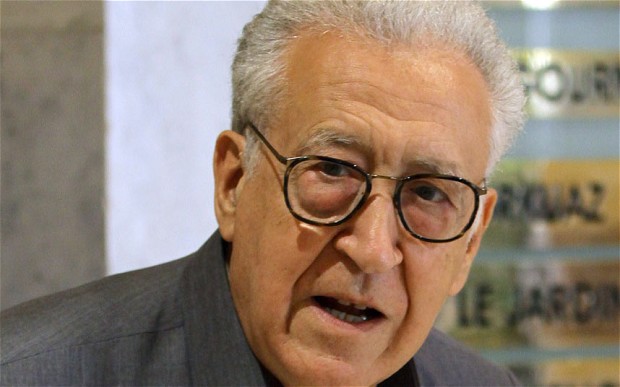CAIRO: The prosecution said Wednesday during the trial of ousted president Hosni Mubarak that the interior ministry and the national security agency were uncooperative, refusing investigators’ requests for official documents to help build their case.
On the second day in which the prosecution was pleading its case against Mubarak, ex-interior minister Habib El-Adly and six of his aides, the attorney general said the two entities refused to cooperate by providing records detailing the weapons deployed to riot police during the early days of January’s peaceful protests which eventually toppled the regime.
The attorney general said that with no material evidence directly linking the defendants to the scene of the crime, the prosecution set out to prove that the defendants are accomplices to murder through incitement, agreement with the perpetrators to commit the crimes and the provision of weapons to do so.
He said that the charges involve the killing of 225 protesters and injuring of over 1,300 in public squares in 10 provinces.
Mubarak’s lawyer Farid El-Deeb was noticeably absent during the session.
The prosecution read out excerpts from the testimonies of over 2,000 eye witnesses and victims’ families, leading with that of police general, Hussein Moussa, who headed the communications department at the interior ministry at the time.
Moussa testified that he overheard clear orders to provide police forces in Tahrir Square with live
ammunition and automatic weapons to crush the protests.
However, Lawyer Mohamed Kadry, representing one of the victims’ families, criticized the prosecution’s performance as "weak."
"The judge bases his verdict on the witness testimonies inside the court," he said, pointing out that Moussa had changed his testimony when he appeared before the court
Kadry further criticized the prosecution for presenting extracts from Moussa’s testimonies, saying the latter denied in court what he had said earlier during the interrogation.
In fact Moussa was accused of destroying this key material evidence; the recordings of all wireless communications between El-Adly and senior interior ministry aides.
Kadry questioned why the prosecution had not summoned eye-witnesses unrelated to the police force, who have vested interests in hiding the truth, adding that some of the plaintiffs’ lawyers will request the summoning of witnesses questioned by the official fact-finding committee, whose report, he claims was not even included in the prosecution’s case.
Excerpts of other testimonies indicated that the police used lethal weapons to crush protests. One policeman testified that a leading police officer even directed thugs and ex-convicts to infiltrate protesters and commit acts of violence in order to justify the extreme violence used against them.
The prosecution also recounted the testimonies of field doctors who said they saw victims of gunshot wounds, rubber bullets and collision against hard objects, referring to those crushed by police vehicles.
The testimony of Ashraf Azab, a former police general and the head of security at the American University in Cairo (AUC), was also evoked. Azab said in his testimony that 15 police officers stormed the AUC campus in Tahrir and intentionally fired buckshot at peaceful protesters from atop the main building.
Casings and cartridges of gunshots were collected as evidence from the scene, he said.
Azab also testified that the police did not follow standard procedures for containing riots on Jan. 28.
The prosecution screened video footage including one of a policeman firing his rifle from a police vehicle and snipers on top of the interior ministry building.
"Even though the footage was very emotional, it is easy for the defendants’ lawyers to discredit it," Kadry said.
One of El-Adly’s lawyers also criticized the prosecution’s case.
Lawyer Mohamed Saeid said the prosecution "did not provide any evidence to link the crime" to his defendant.
However, Samira El-Harsh, deputy head of the lawyers’ syndicate in North Sinai, who represents one of the victims’ families, commended the prosecution for doing "a phenomenal job" given the complete lack of cooperation on the part of state institutions.
The judge adjourned the session to Thursday, the last day allocated to the prosecution to argue its case.


